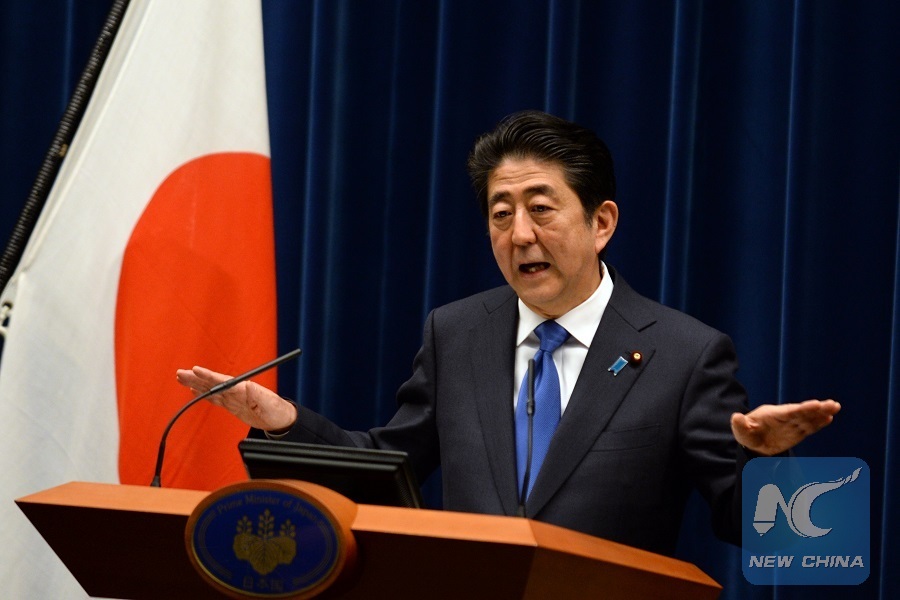For some time, Japan is believed to have been marginalized on the North Korean nuclear issue. Pyongyang has not only significantly improved its relations with Seoul, but also plans to hold a summit meeting with Washington before the end of May. This has put Japan in an embarrassing and awkward position.

Japanese Prime Minister Shinzo Abe speaks during a press conference at the prime minister's official residence in Tokyo, June 1, 2016. (Photo: Xinhua)
Before that, Shinzo Abe's government regarded North Korea as an enemy and had been calling for intensified pressure on Pyongyang. Even as South Korea eased tensions with the North, Abe urged his South Korean counterpart Moon Jae-in not to scale down joint military drills with the US so as to keep up pressure on the North.
Moon rejected Abe's request and regarded it as interference in Seoul's domestic politics. "This is a matter of South Korea's sovereignty and domestic affairs," Moon said, according to media reports. Japan's Pyongyang policy was welcomed by neither North or South Korea.
But Japan will not be totally marginalized on the North Korean nuclear issue. On the one hand, Abe's government has flexible diplomacy and can adjust its policies in accordance with exterior changes. The country will adjust its Pyongyang policy based on Washington's and Beijing's stance on the nuclear issue. Although Abe may continue to stress the need for high pressure on North Korea during his US trip from April 17 to 20, he is unlikely to insist on his stance if the US opposes. Tokyo will make its North Korea policy in accordance with Washington's. Trump's Pyongyang policy is still unclear: a combination of cohesion and negotiations. This has left Abe some leeway in making his own North Korea policy.
On the other hand, North Korea's diplomacy is also flexible. Although North Korea resents Japan, especially for Japan's brutal colonization and suppression on its soil in the past, and threatened to "sink" Japanese islands with nuclear weapons, Pyongyang has maintained contacts with the General Association of Korean Residents in Japan and has discussed the possibility of a summit between Abe and Kim, according to Japanese media reports. This suggests that North Korea has attached some importance to Japan.
Admittedly North Korea hasn't paid as much attention to Japan as to other countries. But a potential summit with Kim has saved Abe's face. Every country has its own way to safeguard national interests and improve its national image, including arranging a summit with another state. North Korea has become increasingly skilled in diplomacy, and this has also given Abe some leeway amid embarrassment.
We hope Japan can play a constructive role in promoting regional peace. The Abe government shouldn't blindly follow Washington's Pyongyang policy. Tokyo should take advantage of its alliance with Washington, give Trump some helpful advice and push the White House to make major policy adjustments on the nuclear crisis.
North Korea said earlier that it was willing to suspend nuclear and missile tests if the safety of the current government was guaranteed.
Japan should urge the US to take North Korea's security concerns seriously. In the past, the US was unwilling to provide North Korea security assurances. This has resulted in multiple losers. All parties concerned should learn from such experiences.
The author is deputy director of the Japan Study Center at China Foreign Affairs University.


